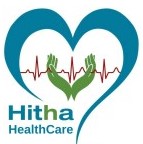Heliotherapy
Expert Care, Enhanced Well-Being: Specialized Heliotherapy

Understanding Heliotherapy
- Heliotherapy is the therapeutic use of sunlight.
- Historically, it was used to treat various conditions, particularly before the advent of modern medicine.
- Today, its application is more nuanced, with a focus on controlled exposure for specific conditions.
- It’s closely related to, but distinct from, phototherapy, which uses artificial light sources.
- Accuracy:
- Clearly differentiate between heliotherapy (natural sunlight) and phototherapy (artificial light).
- Emphasize the importance of controlled exposure to minimize risks.
- Highlight that excessive sun exposure is harmful.
- Safety:
- Stress the potential dangers of uncontrolled sun exposure, including sunburn, skin aging, and increased risk of skin cancer.
- Explain that any use of heliotherapy should be under the guidance of a healthcare professional.
- Provide information on safe sun exposure practices.
- Context:
- Explain the current medical applications of sunlight, such as its role in vitamin D production and its use in treating certain skin conditions.
- When refering to skin conditions, it is important to clearly refer to phototherapy treatments, that are conducted in controlled medical enviroments.
- Avoid promoting heliotherapy as a general cure-all.
- Alternatives:
- Highlight modern, evidence-based treatments that are available.
- When vitamin D deficiency is a concern, promote safe supplementation.
- Legal and ethical considerations:
- Be very careful to avoid any language that could be missconstrued as medical advice.
Sunlight and Your Health
“Sunlight plays a vital role in our health, primarily through the production of vitamin D. However, it’s crucial to understand the difference between healthy sun exposure and harmful overexposure.
Vitamin D and Sunlight:
- Our bodies produce vitamin D when our skin is exposed to sunlight.
- Vitamin D is essential for bone health, immune function, and overall well-being.
- However, many people can obtain sufficient vitamin D from dietary sources and supplements, reducing the need for excessive sun exposure.
Sunlight and Skin Conditions:
- Controlled exposure to ultraviolet (UV) light, in the form of phototherapy, is used to treat certain skin conditions, such as psoriasis and eczema.
- This treatment is performed under strict medical supervision using specialized equipment.
- It is very important to not confuse Phototherapy with Heliotherapy.
Important Safety Information:
- Excessive sun exposure can lead to sunburn, premature skin aging, and an increased risk of skin cancer.
- Always protect your skin from excessive sun exposure by using sunscreen, wearing protective clothing, and seeking shade.
- If you have any concerns about sun exposure or vitamin D deficiency, please consult with your healthcare provider.
🩺 Therapeutic Benefits of Heliotherapy
🧬 Common Uses of Heliotherapy
- Seasonal Affective Disorder (SAD)
- Vitamin D deficiency
- Chronic fatigue and low mood
- Psoriasis, acne, and certain skin conditions
- Mild hypertension
- Recovery support for weakened immunity
🌟 Why Choose Our Heliotherapy Services?
- Guided by trained wellness professionals
- Outdoor therapy zones designed for safe, comfortable sessions
- Personalized plans based on your health goals and conditions
- Combined with nutrition, hydration, and relaxation therapy
- Optional early morning and sunset sessions for gentle light therapy

